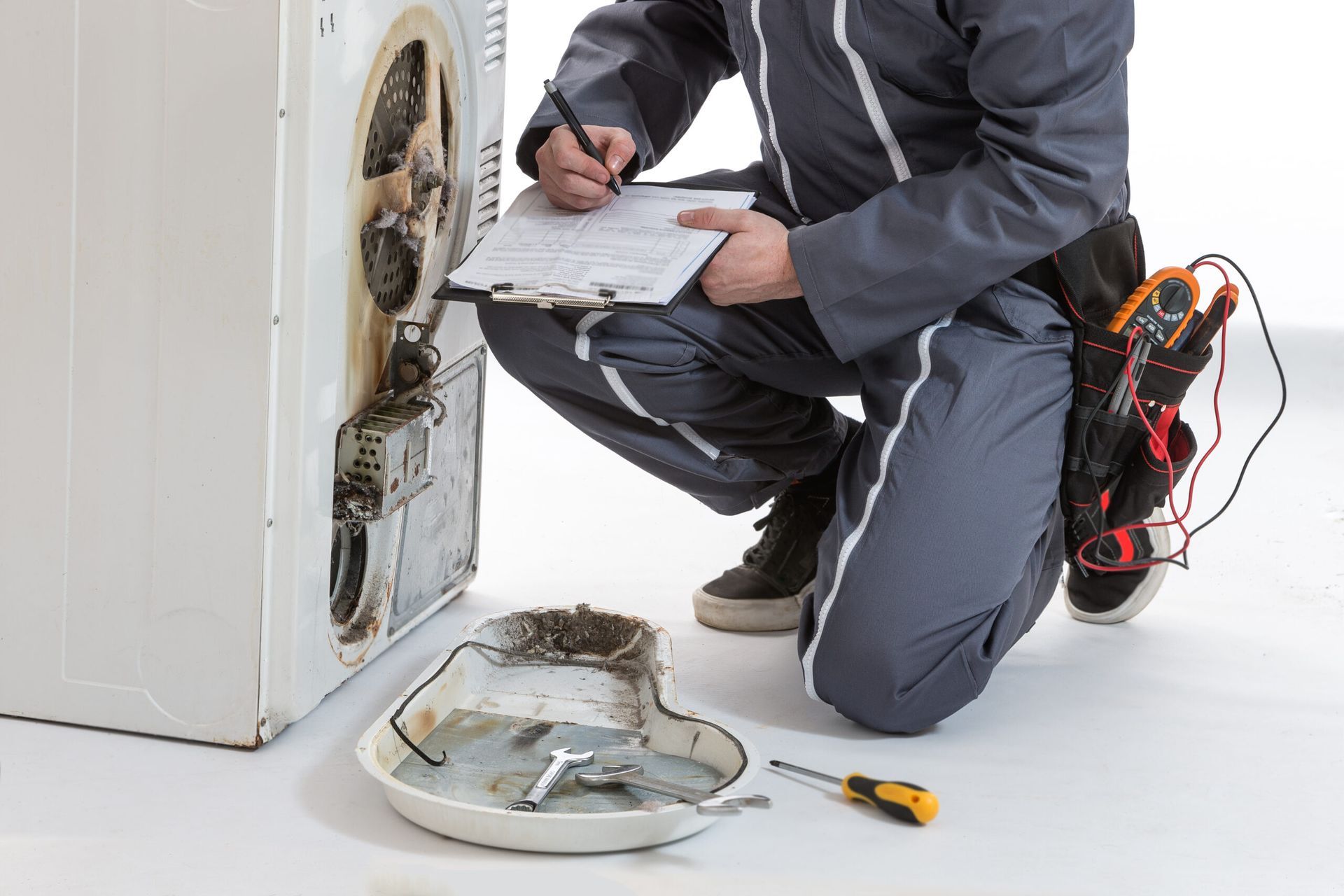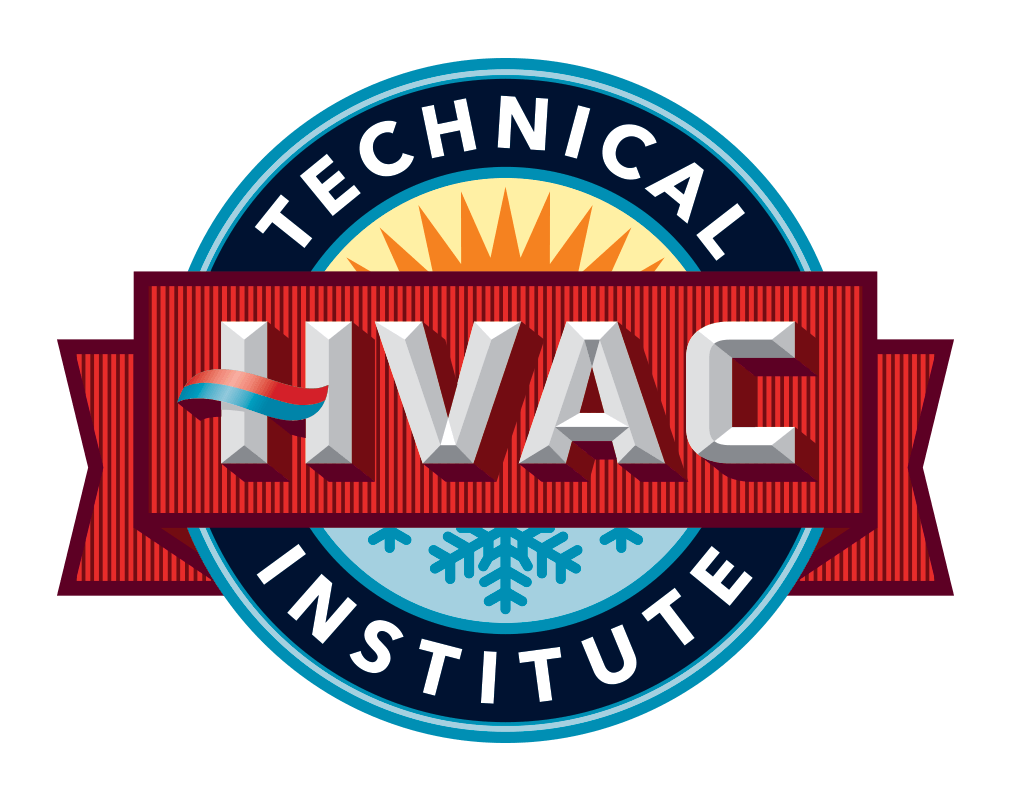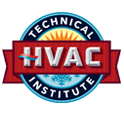APPLIANCE SERVICE TECHNOLOGY - RESIDENTIAL
TRAINING PROGRAM FOR THE CHICAGO AREA - ALSO SERVING CICERO, BERWYN & BURBANK, IL
Want a new career? Consider becoming a residential appliance service technician. The growth of appliance repair jobs continues to increase every year. The job is getting more lucrative and the demand for technicians has also been on the rise. It is projected that by the end of 2028, there will be an 8% increase in the growth rate of the profession since 2018.
This comprehensive Appliance Service Technology - Residential curriculum prepares learners for a career as skilled professionals in the appliance repair field. Students will learn to apply technical knowledge and skills to repair, install, and service residential gas/electric consumer appliances such as stoves, refrigerators, dryers, water heaters, washers, and dishwashers.
- Diagnose appliance problems using diagrams or manual drawings
- Get an introduction to the Appliance Service Industry
- Learn the electrical theory of an appliance
- Pinpoint problems using testing devices
- Safely use various hand and power tools
- Learn residential refrigeration
- Get to know the in's and out's of laundry and kitchen equipment
- Prepare students for leadership roles in the appliance repair industry
APPLIANCE SERVICE TECHNOLOGY - RESIDENTIAL
PROGRAM OUTLINE

INTRODUCTION TO APPLIANCE SERVICE INDUSTRY
This module covers the soft skills technicians need to be effective when interacting with customers. Customer service, communication skills, and sales skills are covered in this module. While appliances are made to last, over time, they're subject to wear and tear that eventually leads to the malfunction of individual parts or the entire system. As an appliance repair technician, you'll need the fundamental skills and knowledge necessary to support customers in need, including the tools of the trade, safety precautions, and how to conduct yourself as a professional technician.
APPLIANCE ELECTRIC THEORY
The course will explore the theory of electrical and electronic systems by learning how electricity functions through both lecture and lab experiences. The learner will diagnose and repair circuits by reading electrical diagrams. The appliance learner will describe and illustrate an electrical sequence of operations and constructing electrical circuits from actual residential appliances. The learner will apply the knowledge from electrical theory to advance into integrated circuits used in electronic circuits.
RESIDENTIAL REFRIGERATION
Developing the knowledge of Residential Refrigeration will cover electrical symbols, diagrams, and the operations of the refrigeration control system. Covers schematic and pictorial diagrams, using meters to troubleshoot circuits, motors, and motor start devices, and how solid-state devices are used in refrigerators, freezers, and room air conditioners. The student will examine the refrigeration cycle and the transfer of heat energy from the cabinet. The seal system will be discussed in the relationship of the EPA 608 Type 1 and Type 2. The learner will produce solder and brazed fittings to gain skills in seal-systems copper and aluminum tubing repairs. The learner will describe and distinguish the difference between the EPA 608 recover, recycle, and reclaim process of refrigerants.
LAUNDRY EQUIPMENT
This section will evaluate the electrical symbols, diagrams, and the operations of washers, dryers, combination units, and laundry centers. The basics of diagnosing and repairing the laundry equipment will employ a service manual and technical data. By understanding the underlying theory of operation, principles of safe installation, and the mechanical, electrical, and gas components of traditional top-loading and high-efficiency washers, you'll have the tools to troubleshoot and repair these appliances successfully. The learner will distinguish the sequence of operation of the different types of laundry equipment.
KITCHEN APPLIANCES
There are many types of appliances found in the kitchen. These appliances range from ovens, ranges, cooktops, dishwashers, disposals, and microwaves; ovens, ranges, and cooktops are essential appliances in any customer's kitchen. As an appliance repair technician, you'll have the opportunity to work with all these appliances. By understanding the theory of operation for ranges, ovens, and cooktops, the mechanical, electrical, and gas components, and the principles for safely installing these appliances, the learner has the knowledge necessary to troubleshoot many issues successfully.
RESIDENTIAL INSTALLATION
There are many types of cooking equipment found in residential kitchens; therefore, this course will take the knowledge gained from the residential gas/electric and apply it to the food service industry. By understanding the theory of operation for ranges, ovens and cooktops, the mechanical, electrical, and gas components, and the principles for safely installing these appliances, the learner have the knowledge necessary to successfully troubleshoot many issues. Gas and electric controls will be discussed in the context of residential food service equipment.
WHAT YOU'LL LEARN
Our Appliance Service Technology - Residential school in Chicago, IL will prepare you for job opportunities and equip you with the knowledge and skills to diagnose and fix common residential appliances. Here's a breakdown of what you can expect to learn:
- How different appliances work (refrigerators, dishwashers, washing machines, dryers, ovens, etc.)
- Understanding of electrical circuits, gas systems, and mechanical components
- Diagnostic and repair Techniques
- Reading appliance schematics and manuals
- Understand safety protocols for working with electrical and gas appliances
By the end of the course, you'll have the practical skills and knowledge to enter the appliance repair industry or repair appliances for your own home.
READY TO START?
If you’re interested in our Appliance Service Technology - Residential program, feel free to call us at 773-927-9562 to learn more, or fill out our contact us form to get started.
2025 APPLIANCE SERVICE TECHNOLOGY - RESIDENTIAL PROGRAM SCHEDULE
Day Classes (33 Weeks) ● MON – THU (9:00AM to 2:30PM)
| Start Date | End Date | Instructor |
|---|---|---|
| 7/14/2025 | 3/19/2026 | TBA |
Night Classes (48 Weeks) ● MON – WED (6:00PM – 10:30PM)
| Start Date | End Date | Instructor |
|---|---|---|
| 5/5/2025 | 5/20/2026 | TBA |
Class Start Dates and Scheduled Times Are Subject to Change. Orange indicates class is filled/closed.


